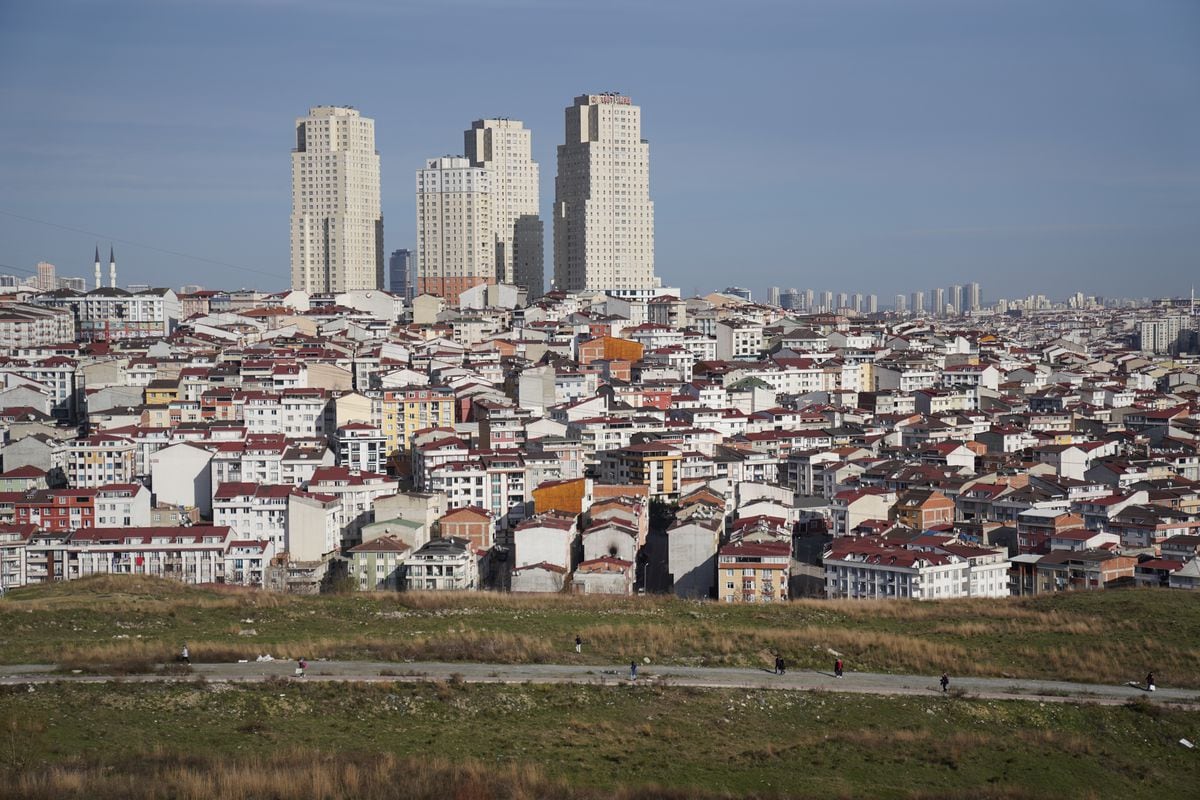
A few weeks ago, the governor of the Turkish Central Bank, Hafize Gaye Erkan, caused a stir after she claimed in an interview with the Hürriyet newspaper that it had been impossible for her to find a house in Istanbul, and that was the case with move in with her mother. “Can Istanbul be more expensive than Manhattan?” he complained. Her words were widely criticized in articles and on social networks as a mere PR move, an attempt by the head of Turkey's monetary policy to put herself at the level of ordinary people. Of course, Erkan had to accept a significant drop in income after giving up his job at the American company Marsh McLennan and taking over the management of the central bank: He only earned 5,000 euros a month from around 77,000 euros. But it is still fourteen times the minimum wage earned by around 40% of workers in Turkey.
He was undoubtedly right about one thing: real estate prices in Istanbul have skyrocketed. In the last three years, rents have increased by 756% and purchase prices by 651%. The average rent for a 100 square meter house in Istanbul is 17,100 lira, about 535 euros. Compared to other European cities, this amount may seem affordable, it is equivalent to one and a half salaries of those who earn the minimum wage.
Buying a home has also become impossible for many Turks. In some central districts of the metropolis, prices are over 300,000 euros, in others, for example in Besiktas and Sariyer on the Bosphorus, they are almost 500,000 euros. according to the Endeksa portal. It's true that Istanbul is a huge city – it stretches over a hundred kilometers from one end to the other – and full of inequalities and contrasts: in other parts of the city the purchase price is less than 100,000 euros. It is precisely these inequalities that contribute to the housing bubble. “Inflation has made income distribution even more unequal. “There are professionals, merchants and businessmen who are improving their situation, while other workers see their situation getting worse day by day, so a part of Turkish society can afford to buy a house,” explains Ahmet Büyükduman, economist and Real estate market expert.
investment
Given the inflation crisis that began in Turkey in mid-2021, a part of those who had savings decided to invest in bricks. In addition, there were those who took advantage of the Erdogan government's heterodox policy of keeping interest rates well below inflation to obtain cheap loans and invest them in the real estate market, and these were exactly the people who did not need a home, but already did it as an investment method. The crisis is not a problem of a lack of construction activity. Although construction activity no longer reaches the pace of the mid-2010s, when more than 200,000 apartments were built per year in Istanbul alone, around 300,000 apartments have been built in the last three years, while at the same time the population of the Turkish megalopolis has increased by half a million people increased.
Walking around the city you can see what is being built: large steel and glass towers, vertical structures touted as the ultimate luxury. And a not insignificant part of it remains empty. There is, Büyükduman emphasizes, a major imbalance between the supply and the needs of a large part of the population: affordable housing. All in all, the bubble appears to be bursting: After three years of records, home sales fell to their lowest level in the last decade in 2023.
You can view the correspondent's latest letters here
Follow all information Business And Business on Facebook and Xor in our weekly newsletter
The five-day agenda
The most important business quotes of the day, with the keys and context to understand their significance.
RECEIVE IT IN YOUR EMAIL
Subscribe to continue reading
Read without limits
_

